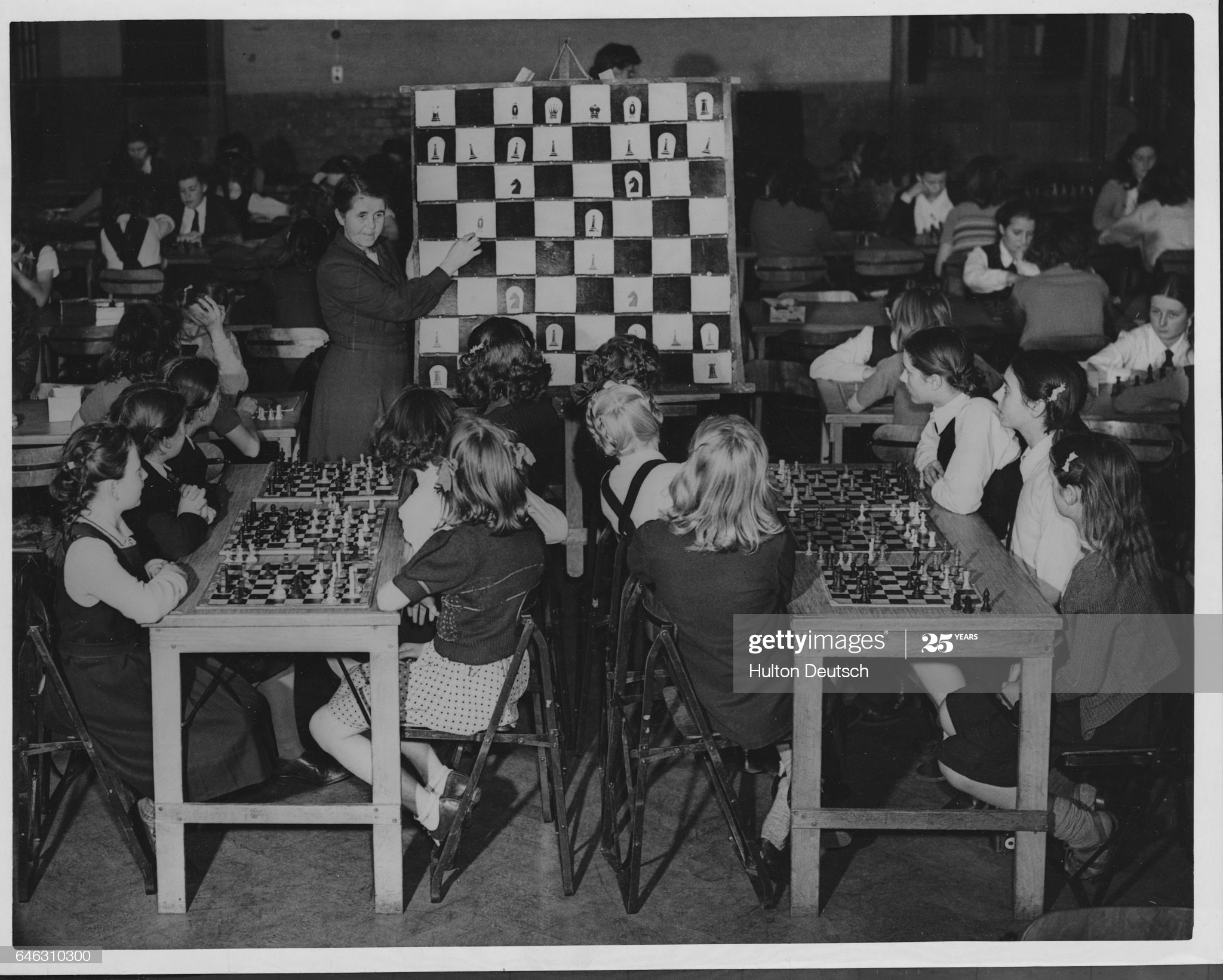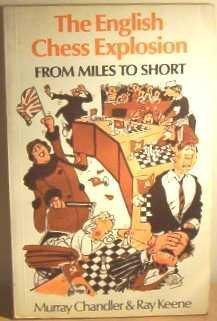The following article was originally published on November 7th 1980 in Education magazine. The author was George Low. George may be found on LinkedIn. Education magazine was a weekly publication that started in 1903 and in 1997 was absorbed into Education Journal.
The article was reproduced in 1981 in The English Chess Explosion by Murray Chandler and Ray Keene :
Education, 7th November 1980
The school seedbed of Britain’s chess success
George Low explains why our youngsters are doing so well
“Britain’s international chess team, with an average age of under 30, is now the most formidable and talented in the world. At this month’s tournament in Malta they will be breathing down the necks of the Russians for the championship and have a high chance of coming away with a medal.
Behind the national team there is an even more promising junior squad, who have won the European championships two years’ running. Among the up and coming youngsters who are beginning to give the Russians cause for anxiety are two potential world champions – Tony Miles, now a Grandmaster and serious contender for the world championship, and Nigel Short, who at 15 is already the youngest international master ever.
The remarkable upsurge of standards and interest is a phenomenon of some educational significance. The schools have been the seedbed. The nurturing of young talent (often from the age of six or even younger) has been a tangible proof of the dedication of teachers to supervision and support outside school
hours, and there are few extra-curricular activities more time-consuming than chess.

But alongside the school clubs a network of small informal clubs have sprung up and a series of tournaments for all ages and groups. City financier Jim Slater and Lloyds Bank can take the main credit for financial sponsorship of the junior squad, and newspapers like The Sunday Times and The Evening Standard have stimulated a great deal of competitive zeal through their school and individual tournaments.
Like many educational developments in this country, the chess phenomenon has completely by-passed the Department of Education and Science, who have turned down all approaches for financial and even moral support. Officials are wont to plead that there is no mention of chess in the 1944 Education Act or its successors, This is, of course, true, but the Department, nevertheless, manages to make all sorts of direct and indirect contributions to musical and sporting activities. When set beside the intense involvement of many other nations in the development of chess the official attitude appears all the more
uninspiring.
How then has Britain managed to bound up the international league table from no. 26 to among the top three nations of the world? Mr. Leonard Barden, manager of the junior squad, traces the resurgence of interest to media coverage of the Spassky-Fischer duel eight years ago and its sequel between Korchnoi and Karpov five years later.
In about 1972-3, he recalls, the selectors started casting their nets much wider than the Home Counties grammar schools where the recruiting ground had
traditionally been. He and his colleagues looked through the results of a lot more tournaments all over the country. Those who had real talent were encouraged to go in for the National Junior Squad championships and to enter adult tournaments. They were also given the opportunity to play against Grandmaster in ‘simuls’ (simultaneous games involving 20 or 30 boards). Mr. Barden now has 500 young players on his books in whom he takes an active interest, following their tournament games and writing to suggest alternative strategies in their games. Beneath these there is a pool of 2000 to 3000 children who play in tournaments and are graded players whom the selectors have their eye on.

Nigel Short was an early find when he won the Merseyside championship under nines. By the age of 9.5 he was developing very rapidly under special tuition and was entering simuls with Grandmasters. He was one of the children who Leonard Barden put into his training schedule and persuaded him to aim for the highest league. ‘Between the ages of nine and fourteen they can develop very rapidly and are ready to play with adults. After that they fall foul of the English exam system and that slows them down having to memorise all that largely irrelevant mass of information,’Mr. Barden says.
There is no risk of force-feeding the children in his squad, he says, they are all naturally bright and do not suffer from the competition within their age group. They are as group a perfectly normal lot. He believes that besides the technical help promising youngsters can be given such as being introduced to chess magazines, motivation is all-important. The Department of Education should do more to foster chess, he thinks, achievement in chess and success in academic subjects.
Mr. Michael Sinclair, who runs the chess club at Hampton School and organises many school tournaments, see numerous educational and personal benefits from children playing chess in schools. The older boys (Ed: this was 1980!) can help the younger ones to develop their game and they in turn learn a lot from competing with adults in congresses.
The game teaches children to concentrate for long periods of time, to observe correct etiquette and to accept adjudication decisions (Ed: I suspect this means arbiting decisions!). It also gives them an understanding of a symbolic language that can be a useful grounding in such subjects as algebra or even computer programming. in later studies. Given its undoubted educational contribution, it is surprising that few books have been written on teaching chess in schools.”


Bliss was it in that dawn to be alive, but to be young was very heaven.
I suspect adjudicating decisions meant exactly that, rather than arbiting decisions. Leonard rather adorably devoted an entire chapter of one of his books to ‘window-dressing’ your position coming up to adjudication by putting your pieces on good squares and the like.